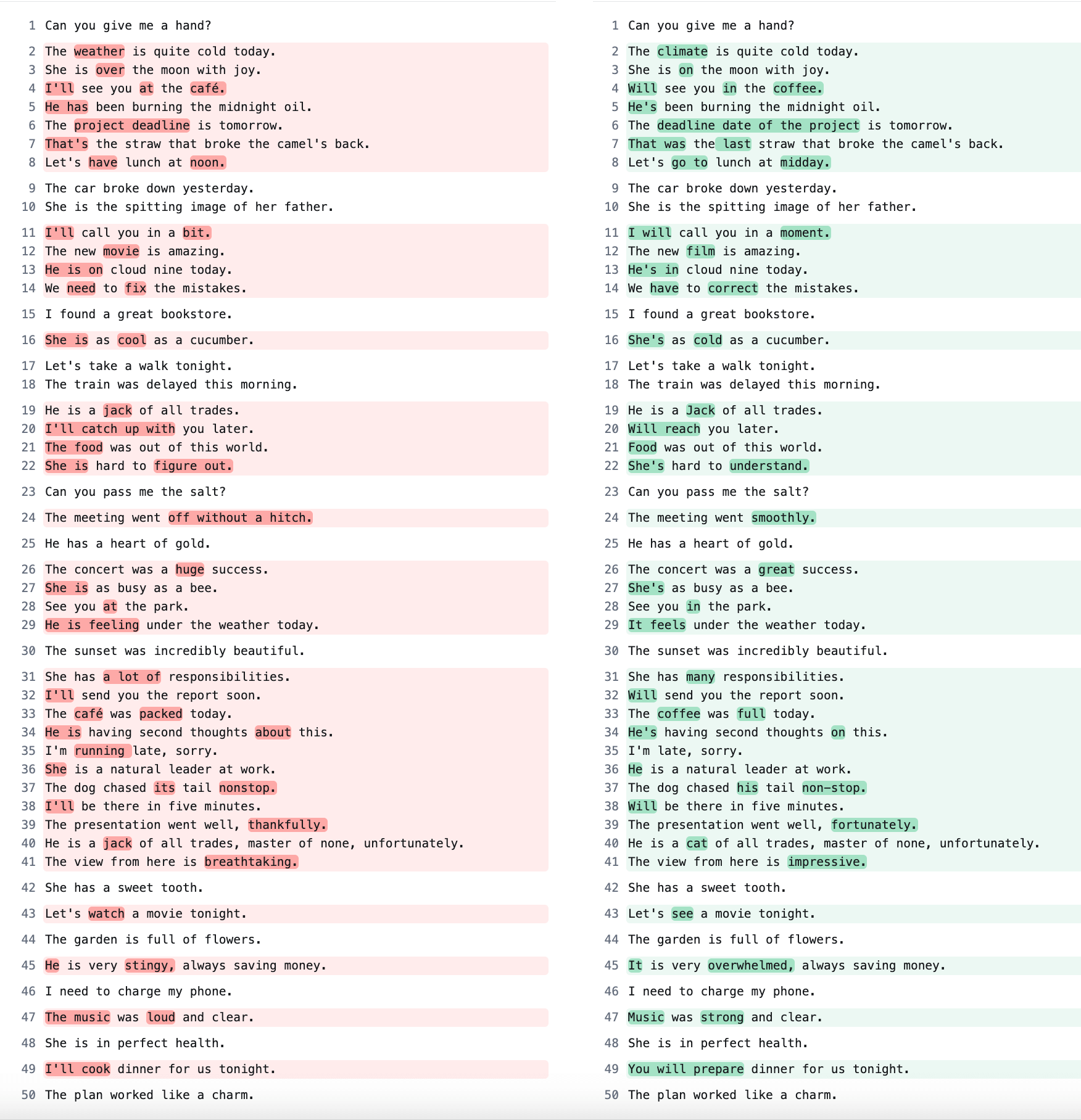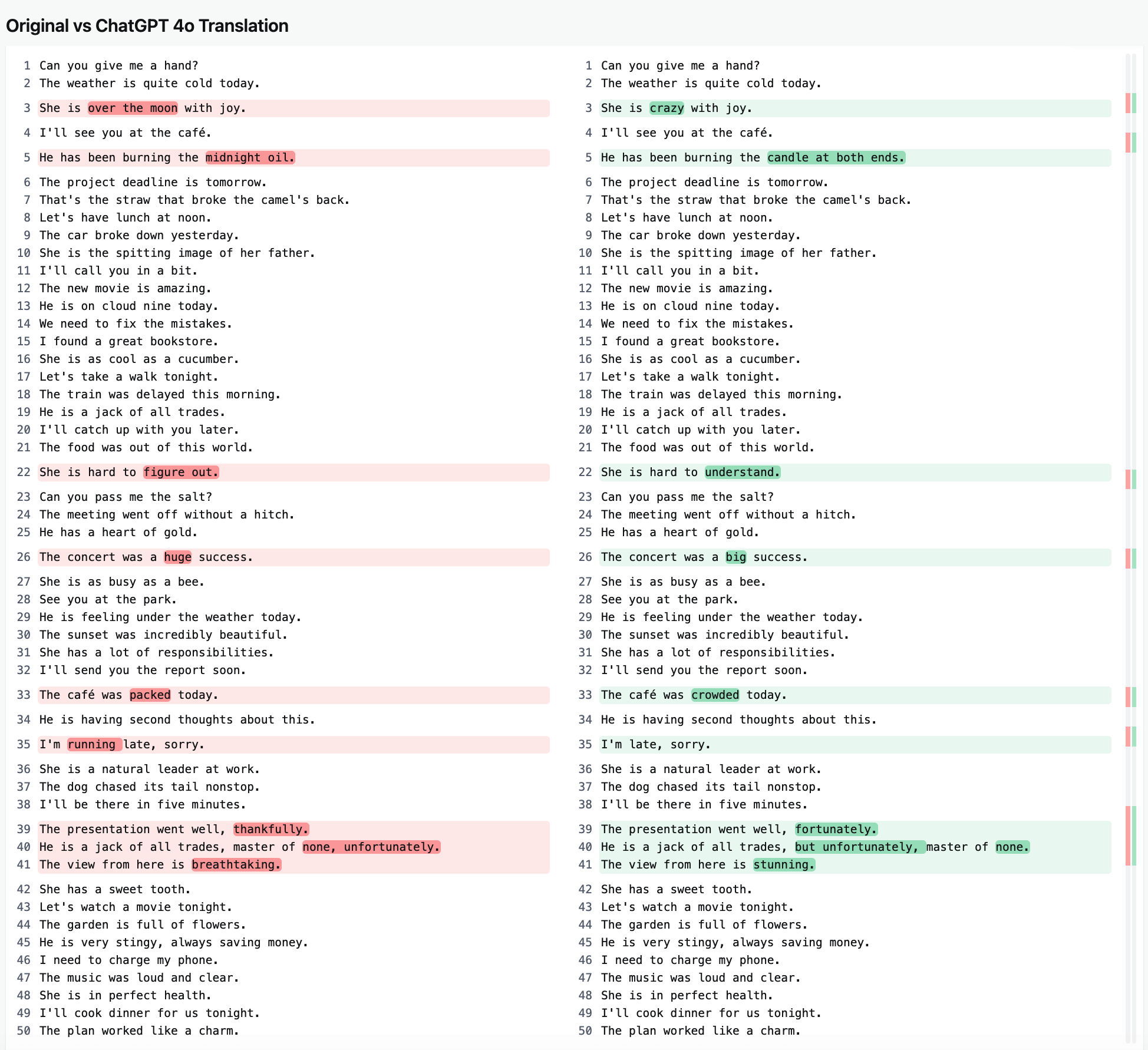Alibaba Translate vs ChatGPT: Does It Really Measure Up?
Assessing Alibaba's AI Translation Tool in comparison with ChatGPT for 2026
In our previous blog post, we compared ChatGPT, Google Translate, and DeepL. Recently, Alibaba claimed its AI translation tool is superior to Google and ChatGPT. To evaluate this bold claim, we used the same double-translation method to see how Alibaba's tool measures up.
Test Overview
We translated 50 sentences from English to Spanish and back into English using Alibaba Translate. Comparing the original sentences with the double-translated versions, we assessed how well the tool preserved meaning. The same sentences and method were used to evaluate ChatGPT for comparison.
Alibaba Translate: Falling Short of Expectations
The test revealed that Alibaba Translate introduced 50 changes between the original and double-translated sentences. This indicates a considerable loss in meaning, particularly with idiomatic expressions. For instance, "She is over the moon with joy" was double-translated to "She is on the moon with joy," completely altering the intended sentiment.

Comparison with ChatGPT
ChatGPT demonstrated much higher accuracy with only 9 changes in a similar test. These were minor alterations that didn't impact the overall meaning. ChatGPT excelled at handling idiomatic expressions and maintaining context, underscoring its superiority over Alibaba Translate.

Why Alibaba Translate Falls Short
Alibaba Translate shows promise for simple translations but struggles with complex language and idioms. The literal translation approach often misses the nuances that tools like ChatGPT capture. This limitation may stem from an insufficient training model focused on contextual language handling.
Final Thoughts
While Alibaba's AI translation tool has potential, our tests indicate it needs significant improvement to compete with ChatGPT. For accurate and contextually aware translations, ChatGPT remains the best choice as of now.